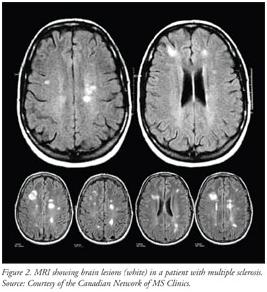What is Multiple Sclerosis and How Can I Prove my Disability?
 If you live with multiple sclerosis and are unable to work due to an MS-related disability, you might be entitled to disability benefits. MS is a disease in which the medical community knows little regarding its cause or how to best treat it. Doctors do know that it is an autoimmune disease that affects the central nervous system. Signals transmitted along the nerves are slowed or even stopped by damage to what is known as the myelin sheath. In healthy people, myelin helps the nerve impulses travel smoothly throughout the nervous system. This slowing or stopping of the nerve impulses is what causes the MS symptoms. These symptoms include vertigo, depression, fatigue, tremors, bladder dysfunction, reflux, bowel dysfunction, pain, vision problems, muscle weakness, muscle spasm and even possible cognitive impairments.
If you live with multiple sclerosis and are unable to work due to an MS-related disability, you might be entitled to disability benefits. MS is a disease in which the medical community knows little regarding its cause or how to best treat it. Doctors do know that it is an autoimmune disease that affects the central nervous system. Signals transmitted along the nerves are slowed or even stopped by damage to what is known as the myelin sheath. In healthy people, myelin helps the nerve impulses travel smoothly throughout the nervous system. This slowing or stopping of the nerve impulses is what causes the MS symptoms. These symptoms include vertigo, depression, fatigue, tremors, bladder dysfunction, reflux, bowel dysfunction, pain, vision problems, muscle weakness, muscle spasm and even possible cognitive impairments.
Multiple Sclerosis is typically diagnosed with an MRI scan. However, an MRI positive finding is not enough to automatically begin receiving disability benefits since many people with a positive MRI will never show symptoms of MS. To be found disabled by the SSA a doctor will need to show that you meet the standard contained in the SSA’s medical impairment listing or that your impairment makes it so that you cannot engage in substantial gainful activity. You will need all your medical records, hospital visits, test results including MRI and RFC forms filled out by you doctor to show your physical or mental limitations in your ability to work.
Under the MS listing, the SSA considers the following four factors in determining if a person is sufficiently disabled to qualify for Social Security Disability benefits: 1) fatigue; 2) disorganization of motor function; 3) visual impairment; and 4) mental impairment. A sufficient showing under any of these four categories can qualify a claimant for benefits.
The first factor, fatigue, is often the most disabling and sadly, the most overlooked symptom of MS. The exams by the SSA medical consultants rarely properly account for the disabling affect of fatigue on someone suffering from the condition. As a result, fatigue should be documented by keeping a diary of your everyday activities and how they are affected by your fatigue. Medical records can also be a good way to demonstrate severe fatigue if your doctor has done a good job or reporting your complaints of fatigue. Statements from friends or family members who have observed the impact exhaustion has had on your life can also be helpful.
Other important limitations that can be shown to boost your chance of success with a disability claim include the need to use the bathroom frequently, cognitive limitations, dizziness, difficulty using hands, visual limitations, and muscle weakness. Many people with MS also have depression and any limitations from this condition can also be helpful in proving disability.
If you think you may be entitled to Social Security Disability benefits due to MS or other ailments or have questions, call The Law Offices of John T. Nicholson at 1-800-596-1533 for a free consultation today.


Recent Comments